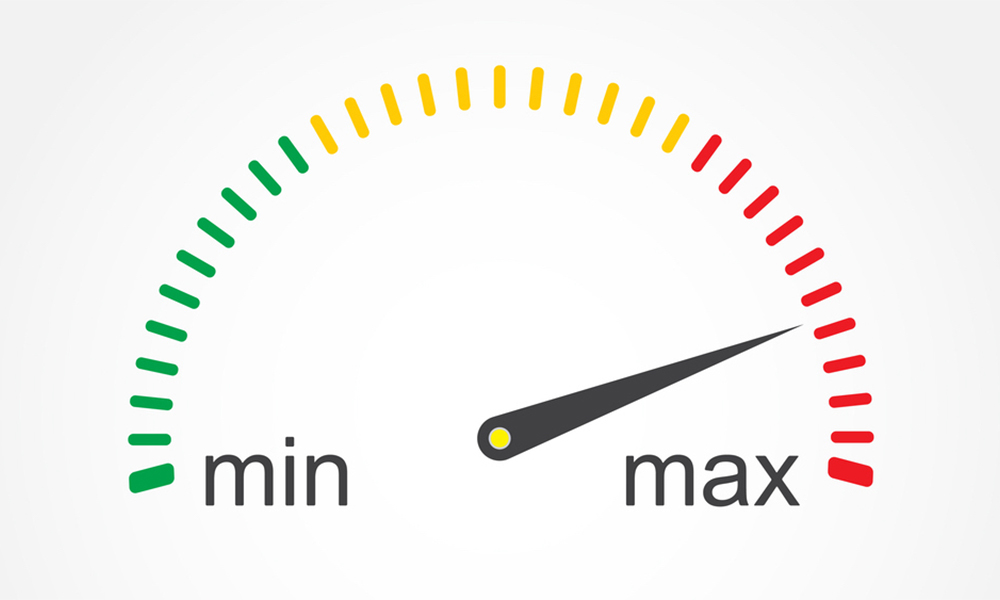This past month, most of us have been living under restrictions that seemed unthinkable a while back. And as we adjust to living and working entirely at home, we’re grappling with a new set of challenges – physical, mental and emotional. For example, you may be feeling confined and lethargic, or you might be experiencing a sense of loneliness and disconnection. Nearly everyone is dealing with increased anxiety, either from personal challenges like grocery shortages and home-schooling, or from big-picture concerns around healthcare and the economy.
With mental health issues on the rise everywhere, my message this week focuses on self-care. How can we best look after ourselves during this challenging period? How can we emerge feeling more resilient and compassionate, instead of depleted and stressed?
Let’s face it; working from home in the current circumstances is challenging. For those who live with family, it’s tough to establish clear boundaries between work, household and leisure. This is understandable because it’s not just about you – it’s also about your partner, your kids, your pets. With everyone constantly at home and a ton of extra chores to be done, it can be difficult to find moments of focus and calm. Meanwhile, those who live solo are cooped up alone 24/7. On the one hand, you may feel a sense of flexibility; on the other hand, a lack of structure can lead to unhealthy habits like overwork, procrastination or excessive multitasking.
Self-care goes beyond physical wellness – it extends to your state of mind, your environment, your relationships and the ways in which you choose to spend your energy and time.
In either situation, you’re more likely to be tired and stressed right now, which undermines not just your health but also your productivity, leadership and relationships. In a state of fatigue and worry, you can become less creative, make bad decisions and bring your worst self to co-workers as well as loved ones. Therefore, looking after yourself isn’t a luxury but a necessity.
So, what exactly is self-care? The first thing that comes to your mind might be the Instagram version: spa days, herbal teas and elaborate workouts. While all of these can surely help you recharge your batteries, self-care goes beyond physical wellness – it extends to your state of mind, your environment, your relationships and the ways in which you choose to spend your energy and time.
In her Harvard Business Review article, 6 Ways to Weave Self-Care into Your Workday, Amy Jen Su points out that self-care comes from a place of compassion and love:
Self-care can feel daunting or unattainable. But the intention is not to add more to your already full plate, or create a reason to beat yourself up. For example, you might find yourself annoyed when someone suggests that you need to take better care of yourself, especially when it seems they don’t understand how much you’ve already got on your plate. Self-care doesn’t originate from judgment. Instead, self-care flows from an intention to stay connected to oneself and one’s overall mission.
In the current situation, a lot of traditional self-care advice has become less relevant. For example, most of us can’t go to a coffee shop for a change of scene, meet up freely with family and friends, or spend time renewing in nature. So, here are six ways in which you can look after yourself better while working from home:
1. Take 10 for Zen
Some people are using this opportunity to upgrade their fitness levels or learn new things – which is excellent. Others, however, may not be in the right mindset to do so, or simply don’t have the time due to additional tasks like cooking, cleaning and childcare. Instead of setting lofty goals and then feeling bad for not completing them, aim for realistic micro-goals. In an article on self-care, ReachOut suggests:
Try mindfully doing an everyday activity – in other words, put aside distractions and focus entirely on one small task. For example, while you’re having a cup of tea, pay attention to your senses (the smell of the beverage, the warmth of the cup in your hand, the taste…).
Besides being mindful, keep moving with quick 10-minute workouts whenever possible, be it yoga, Pilates or HIIT. With hundreds of free apps and videos out there, you’ll have no difficulty finding expert guidance.
I have found great peace of mind from my 10 minutes morning mediation ritual followed by tea time with my wife. Before the kids wake up and work calls begin, we both put our phones away and give a hundred percent of our focus to each other. It’s a perfect start to my day.
2. Create meaningful interactions
In an interview with TED Connects, Harvard psychologist Susan David explains that your emotions are signposts for your values. So, if you’re feeling lonely right now, it’s probably because you cherish connectedness and meaningful social interactions. Luckily, you don’t need to give up on these simply because you’re at home!
Ask yourself: are there small changes I can make to bring these values into my day? Can I ring up a close colleague for a chat instead of simply texting him the project update? Can I make time to enjoy a leisurely meal with my family? Can I plan a “virtual party” over video chat? Can I get in touch with an old friend whom I haven’t spoken to in years? Many people have reported doing these things and experiencing a surge in positivity and happiness.
Since the lockdown began, we have been having Friday evening happy hour video calls with friends – and it’s been such a relaxing way to end the week.
3. Own your feelings
I’m sure all of us have received and given advice like “be positive” and “look on the bright side” during these past few weeks. While it’s important to find the silver lining, we also need to pay attention to our fear and anxiety. These are perfectly normal emotions, so don’t belittle or brush them away. In her TED interview, Susan David recommends approaching these feelings with curiosity and compassion. This is the foundation for emotional agility, which is vital during a crisis situation like now:
The need for emotional agility becomes so much more profound and so much clearer. We are also deciding whether we let that narrative that is coming through the media own us, whether we’re going to let our emotions own us, or whether we’re going to exert some kind of empowerment…over these experiences.
You could start with not defining yourself by your emotions. David advises avoiding language like “I am lonely, I am sad, I am angry”. Instead, label your thoughts and feelings for what they are: try saying “I’m noticing the thought that things are not getting any better” or “I’m noticing the urge to shut down the conversation with my spouse”. This articulation allows you to take a more active role in navigating your emotional health.
Earlier this week at dinner time, each of us shared what has been the single hardest part of the lockdown for us. Even my little 8 year old had her say. It lead to a beautiful conversation that triggered compassion and understanding between us.
4. Plan your week
Give yourself one full hour to plan the week ahead, professionally as well as personally. Along with urgent tasks, prioritise items that you’re passionate about and consider to be essential; this will renew your sense of purpose even as you work from home. On the leisure front, schedule time for activities that spark joy or make you feel better – even if it means blocking some time you would spend on Facebook or Netflix. Whether it’s exercising, gardening or painting, give it space in your calendar. As wellbeing researcher Ashley Whillans explains in an interview with Harvard Business Review:
You have to schedule these self-care activities in your life as seriously as you would the most important meeting of your life because it is really important. We can keep telling ourselves, we’ll have more time in the future, but we know that’s just the planning fallacy.
Playing with my children is how I have always relaxed. Whether it’s a quick game of table tennis with my son, or a playing Uno with my little one, I schedule playtime on my work from home schedule. It helps me more efficient and a happier person.
5. Build restoration into your day
Don’t think of self-care as separate from your job. Instead, create small windows for renewal within your daily work routine. It could be as simple as taking a few minutes to stretch your legs and get some fresh air, or it could be a more prolonged activity like making a healthy lunch to keep up your energy levels. Remember, these breaks don’t take time away from work – they make you more productive and creative. (During free moments, resists the temptation to continually check the news or social media, as this can make you feel overwhelmed.)
6. Optimise your workspace
Carting your laptop and files all over the house blurs the boundary between work and leisure. If possible, try to create a distinct zone where you can focus on work, be it a quiet corner or a separate room. Aim for a tranquil, well-lit workspace that’s conducive for mental clarity and proper posture. You could also add photographs, souvenirs and artwork that offer inspiration and make you feel connected to your work and colleagues.
In the end, the most important thing is to be kind to ourselves. As Amy Jen Su reminds us:
We can often be our own harshest critic. When the weight of accountability or perfectionism kicks in, ask yourself: “What would I say to a colleague or friend in the same situation?”
Do write in and share how you are finding your balance.








Comments